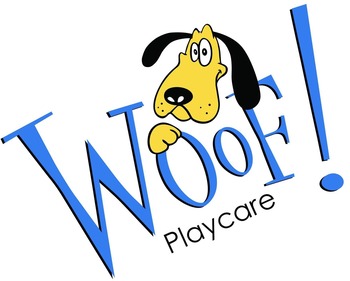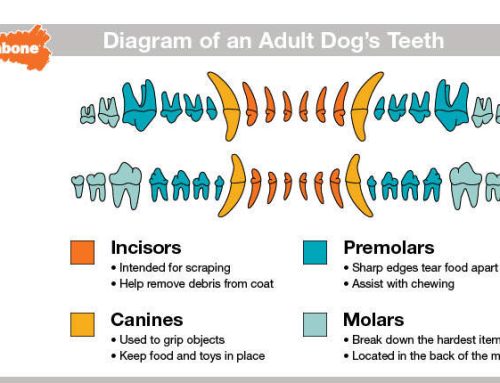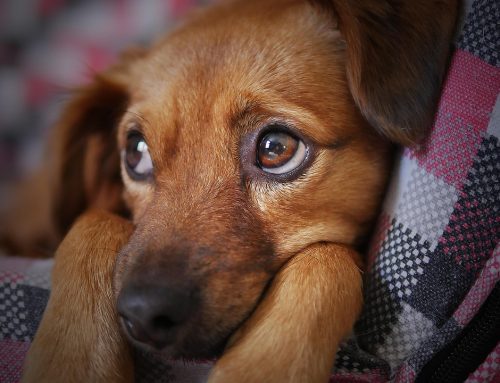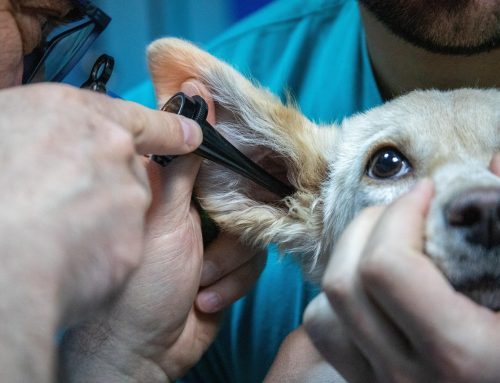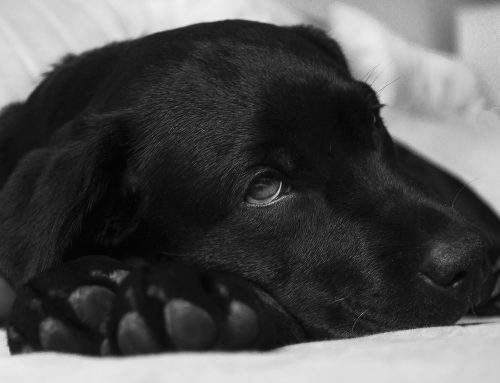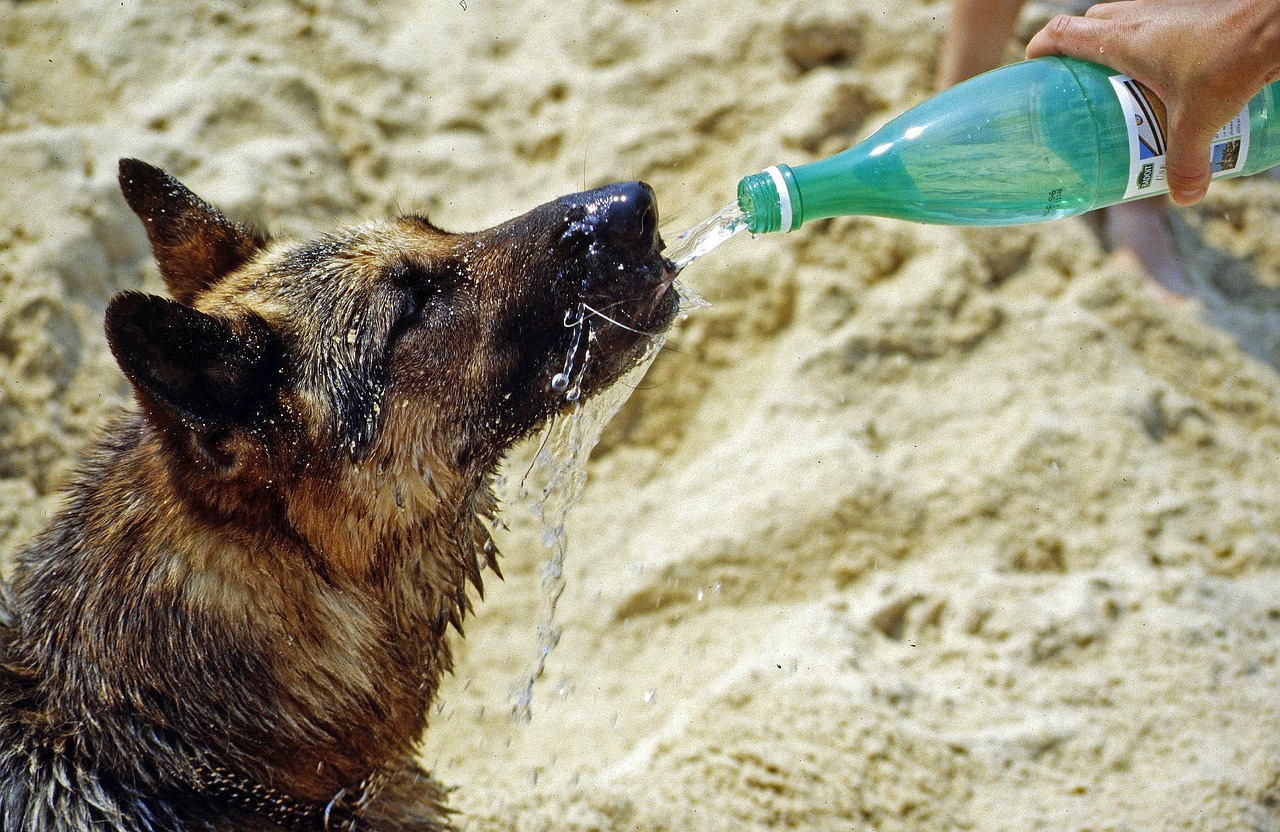
Table of Contents
Why Is My Dog Drinking So Much Water?
Water is one of the most important nutrients for dogs. It keeps their bodies cool, cushions joints, aids digestion, and helps organs work properly. Most pet owners are used to seeing their dog lap up water throughout the day, but sometimes it feels like they’re constantly emptying the bowl.
So, why is your dog drinking so much water? In some cases, it’s perfectly normal. A long walk on a hot day or a bowl of dry kibble can leave your pup extra thirsty. But excessive thirst—especially when paired with other symptoms—may point to an underlying health problem. Knowing the difference can help you decide whether to simply refill the bowl or pick up the phone to call your veterinarian.
How Much Water Should A Dog Drink Per Day?
The American Kennel Club (AKC) explains that the general rule is one ounce of water per pound of body weight, per day. A 10-pound dog needs about 1¼ cups, while a 50-pound dog needs a little over 6 cups daily. Puppies, lactating mothers, and very active dogs may require even more.
It’s important to note that water needs are not fixed—they change with diet, activity, and the environment. For example:
- Dogs on dry food diets drink more than dogs fed wet or raw food.
- Active or working breeds may need double the daily average on exercise days.
- Senior dogs sometimes drink more due to changes in kidney function.
By learning what’s typical for your dog, you’ll notice when something seems out of the ordinary.
Is It Normal For Dogs To Drink A Lot Of Water?
Yes, increased drinking can be completely normal. Some dogs are naturally “big drinkers,” and factors such as activity level and climate play a major role. If your dog just spent the afternoon running at the park in the Florida heat, guzzling water afterward is expected.
But if your dog seems to be draining the water bowl faster than ever, even when resting indoors, it’s worth paying closer attention. Measuring intake for a few days can help determine whether it’s just a temporary change or something more serious.
Can Hot Weather Make My Dog Drink More Water?
Absolutely. Dogs don’t sweat the way humans do—they regulate their temperature by panting and through limited sweat glands in their paws. During hot or humid weather, panting causes increased fluid loss, which naturally leads to higher water consumption.
Even in winter, heated homes can make the air dry and cause mild dehydration. The ASPCA recommends always providing access to fresh, clean water no matter the season. Adding an extra bowl or using a pet fountain can help encourage hydration.
Does Drinking Too Much Water Mean My Dog Is Sick?
Not always—but sometimes it does. Excessive thirst (polydipsia) paired with increased urination (polyuria) is one of the most common signs of an underlying medical condition. Conditions linked to abnormal thirst include:
- Diabetes mellitus – When the body cannot properly regulate blood sugar, it leads to excessive thirst and urination. Weight loss, increased appetite, and lethargy may also occur.
- Kidney disease – Damaged kidneys can’t filter waste effectively, so the body tries to flush toxins by producing more urine, making your dog drink more.
- Cushing’s disease – Overproduction of cortisol can cause increased thirst, frequent urination, and a pot-bellied appearance.
- Liver disease – Changes in liver function may also trigger thirst and urination changes.
According to PetMD, sudden or unexplained changes in water intake are always more concerning than gradual ones.
Can Medications Make Dogs Drink More Water?
Yes. Certain medications list increased thirst as a side effect. These include:
- Steroids (such as prednisone) commonly prescribed for allergies or inflammation.
- Diuretics, which help reduce fluid retention in dogs with heart problems.
- Some seizure medications, which may affect appetite and hydration.
If your dog has just started a new medication and you notice excessive drinking, check with your vet. Often, it’s a manageable side effect, but sometimes dosage adjustments are necessary.
Could Excessive Drinking Be Caused By Diet?
Diet plays a larger role than many realize.
- Dry kibble diets – Because kibble has only about 10% water, dogs on dry food need to drink significantly more.
- Wet or raw diets – Canned food contains 70–80% water, so dogs eating primarily wet food may drink less.
- High-sodium foods – Salty treats or table scraps can leave your dog thirsty, just like humans after salty snacks.
If thirst spikes after dietary changes, the food may be a factor. Switching to a higher-moisture diet or reducing salty snacks may balance things out.
Could Breed Or Age Affect Drinking Habits?
Yes. Breed, size, and age all influence hydration.
- Large breeds naturally consume more water than small dogs.
- Senior dogs may drink more due to kidney changes or medications.
- Working breeds like Huskies or Shepherds require more hydration when active.
Puppies may also seem like they’re constantly drinking, especially during growth spurts or playtime. As long as their behavior and energy are normal, this is usually nothing to worry about.
How Do I Know If My Dog Is Drinking Too Much?
The simplest method is to measure intake. Track how many cups you pour into the bowl over 24 hours and compare it to the recommended ounce-per-pound guideline.
Signs your dog might be drinking excessively include:
- Constantly emptying the bowl faster than normal
- Needing to urinate more often, even overnight
- Accidents indoors despite being house-trained
- Visible weight changes or lethargy
Keeping a log for a week can help your vet quickly identify whether the drinking is truly excessive.
Can Too Much Water Be Dangerous For Dogs?
Yes, though rare. Water intoxication can happen when dogs drink large amounts in a very short period, often while playing in sprinklers, lakes, or pools. Symptoms include vomiting, bloating, loss of coordination, and even seizures. It can be life-threatening if not treated promptly.
Dogs most at risk are water-loving breeds like Retrievers. The AKC warns that if your dog shows sudden distress after heavy water play, you should seek immediate veterinary care.
When Should I Call The Vet?
You should contact your veterinarian if:
- Your dog drinks far more than usual for several days in a row
- Thirst is paired with frequent urination or accidents indoors
- Your dog shows other symptoms like vomiting, loss of appetite, or lethargy
- You notice sudden weight loss or gain
Early detection can make a big difference for conditions like diabetes or kidney disease. Bringing a record of water intake and urination patterns can be extremely helpful for your vet’s diagnosis.
Tips To Keep Your Dog Hydrated Safely
- Provide multiple water stations if you have a large home or yard.
- Use a pet fountain to encourage picky drinkers.
- Bring water on walks and road trips, especially in hot weather.
- Avoid salty human foods that can make your dog thirstier.
- Clean bowls daily to prevent bacteria from growing.
By making hydration safe and consistent, you’ll support your dog’s overall health while spotting unusual changes quickly.
FAQs About Dogs Drinking Too Much Water
Can a dog drink too much water at once?
Yes. Drinking extreme amounts at once can lead to water intoxication, though it’s rare. It happens more often during water play. If your dog suddenly vomits, appears weak, or loses coordination after heavy water intake, call a vet immediately.
How much water is too much for a dog?
If your dog consistently drinks more than one ounce of water per pound of body weight daily, it may be too much. For example, a 40-pound dog should drink around 5 cups per day—if they’re regularly doubling that amount, it’s worth monitoring.
Why is my dog drinking a lot of water and peeing a lot?
This combination often signals diabetes or kidney disease. Both conditions require veterinary attention. Don’t ignore these symptoms, even if your dog otherwise seems fine.
Does my senior dog need more water than usual?
Yes, older dogs may drink more due to reduced kidney function, dietary changes, or medications. Keeping track of intake and scheduling regular checkups is especially important for seniors.
What should I do if my dog suddenly starts drinking more water?
Track the behavior for 24–48 hours. If the change is significant or paired with other symptoms, schedule a veterinary exam. Bring notes on when the change started, how much water they’re drinking, and any other unusual behavior.
Should I limit my dog’s water if they’re drinking too much?
No—never restrict access to water unless directed by a veterinarian. Limiting water can worsen dehydration or underlying conditions. The safer route is to allow free access while working with your vet to find the cause.
Why Dogs Drink So Much Water
Most of the time, your dog is simply quenching a natural thirst after play, hot weather, or a salty snack. But when thirst becomes persistent, extreme, or paired with other health changes, it may be a sign of something more serious.
By paying attention to your dog’s water habits and overall behavior, you can tell when it’s just a minor adjustment—or a red flag that needs medical care. With proper hydration, awareness, and timely vet visits, you’ll help keep your pup happy, healthy, and thriving.
